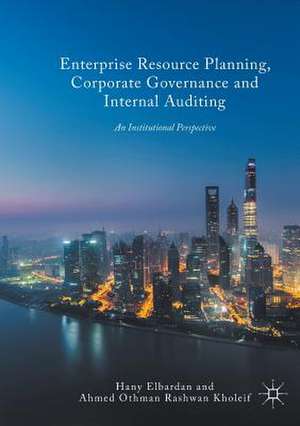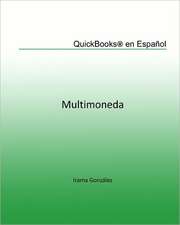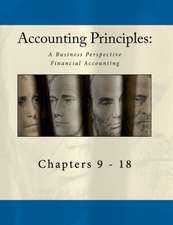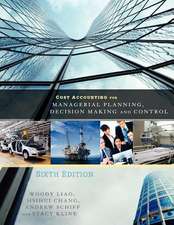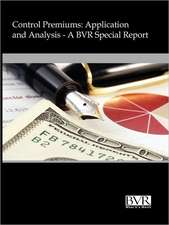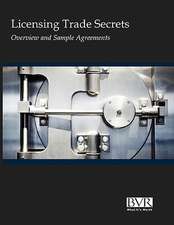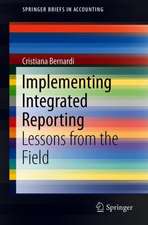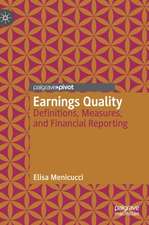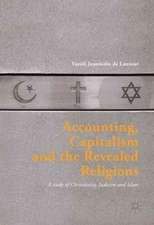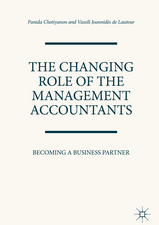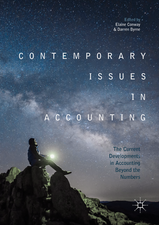Enterprise Resource Planning, Corporate Governance and Internal Auditing: An Institutional Perspective
Autor Hany Elbardan, Ahmed O. Kholeifen Limba Engleză Paperback – 13 mai 2018
This book investigates how corporate governance is directing the internal audit function (IAF) adaptation as a response to enterprise resource planning (ERP) systems. To date, there is insufficient knowledge about the adaptations of the IAF, which are required if it is to maintain its essential role as a governance mechanism. This book extends the reader’s knowledge by exploring and theorising the adaptation of the IAF after ERP introduction and points towards future trends. Adopting an institutional approach, it analyses how the IAF responds to the external governance pressures and the internal pressures of the control logic following the introduction of an ERP system. Featuring data from two listed companies in the food and beverage sector and two large banks operating in Egypt, this volume will be of interest to researchers and academics in the field of financing and ERP systems in particular.
| Toate formatele și edițiile | Preț | Express |
|---|---|---|
| Paperback (1) | 644.82 lei 6-8 săpt. | |
| Springer International Publishing – 13 mai 2018 | 644.82 lei 6-8 săpt. | |
| Hardback (1) | 899.69 lei 6-8 săpt. | |
| Springer International Publishing – 26 iul 2017 | 899.69 lei 6-8 săpt. |
Preț: 644.82 lei
Preț vechi: 758.60 lei
-15% Nou
Puncte Express: 967
Preț estimativ în valută:
123.45€ • 128.80$ • 103.48£
123.45€ • 128.80$ • 103.48£
Carte tipărită la comandă
Livrare economică 12-26 martie
Preluare comenzi: 021 569.72.76
Specificații
ISBN-13: 9783319855394
ISBN-10: 3319855395
Pagini: 437
Ilustrații: XV, 437 p. 7 illus.
Dimensiuni: 148 x 210 mm
Greutate: 0.54 kg
Ediția:Softcover reprint of the original 1st ed. 2017
Editura: Springer International Publishing
Colecția Palgrave Macmillan
Locul publicării:Cham, Switzerland
ISBN-10: 3319855395
Pagini: 437
Ilustrații: XV, 437 p. 7 illus.
Dimensiuni: 148 x 210 mm
Greutate: 0.54 kg
Ediția:Softcover reprint of the original 1st ed. 2017
Editura: Springer International Publishing
Colecția Palgrave Macmillan
Locul publicării:Cham, Switzerland
Cuprins
Chapter 1: Introduction.-Chapter 2: The Enterprise Resource Planning System as a change motive for the Internal Audity Function.- Chapter 3: Institutional Framework for the Study.- Chapter Four: Research Methodology.- Chapter 5: Findings from the Individual Case Studies.- Chapter 6: Cross-Case Analysis and Discussion.-Chapter 7: Conclusion.
Notă biografică
Hany Elbardan, PhD, is an Assistant Professor of Accounting at the College of Business Administration at the American University of the Middle East (AUM), Kuwait, and a lecturer at the Faculty of Commerce at Alexandria University, Egypt. Dr. Elbardan’s research interests lie in accounting and information systems, internal auditing and managerial accounting. He is also a member of the Journal of Organizational Studies and Innovation editorial board.Ahmed Othman Rashwan Kholeif is Professor of Accounting at the Faculty of Commerce, Alexandria University, Egypt, and a Reader of Accounting at the Edge Hill University Business School, UK. He obtained his PhD in management accounting from the University of Essex, UK. Professor Kholeif is also a Senior Fellow of the Higher Education Academy, a member of British Accounting and Finance Association and a member of Management Control Association.
Textul de pe ultima copertă
This book investigates how corporate governance is directing the internal audit function (IAF) adaptation as a response to enterprise resource planning (ERP) systems. To date, there is insufficient knowledge about the adaptations of the IAF, which are required if it is to maintain its essential role as a governance mechanism. This book extends the reader’s knowledge by exploring and theorising the adaptation of the IAF after ERP introduction and points towards future trends. Adopting an institutional approach, it analyses how the IAF responds to the external governance pressures and the internal pressures of the control logic following the introduction of an ERP system. Featuring data from two listed companies in the food and beverage sector and two large banks operating in Egypt, this volume will be of interest to researchers and academics in the field of financing and ERP systems in particular.
Caracteristici
Provides a detailed investigation of the IAF adaptation Introduces a novel means of analysis to interpret the IAF adaptation Addresses an important issue in the socio-technological change management area Explores the future role of ERP systems in triggering organisational change Suggests future trends and research Includes supplementary material: sn.pub/extras
